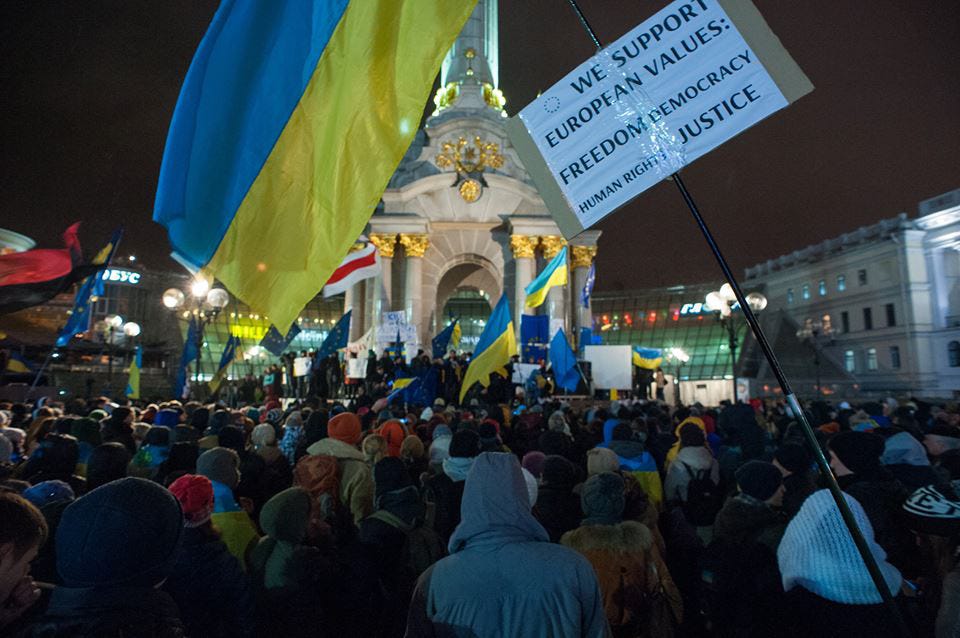Ukraine protest, November 30, 2013, Kyiv. Image Courtesy: Mstyslav Chernov
Ukraine is at war. Europe is at war. America is at war. The world is at war. A criminal regime, that of Putin, has unleashed a war against the world, of which Ukraine is, once again, the victim. But let us not forget that Putin’s war against the fundamental principles of freedom a…




